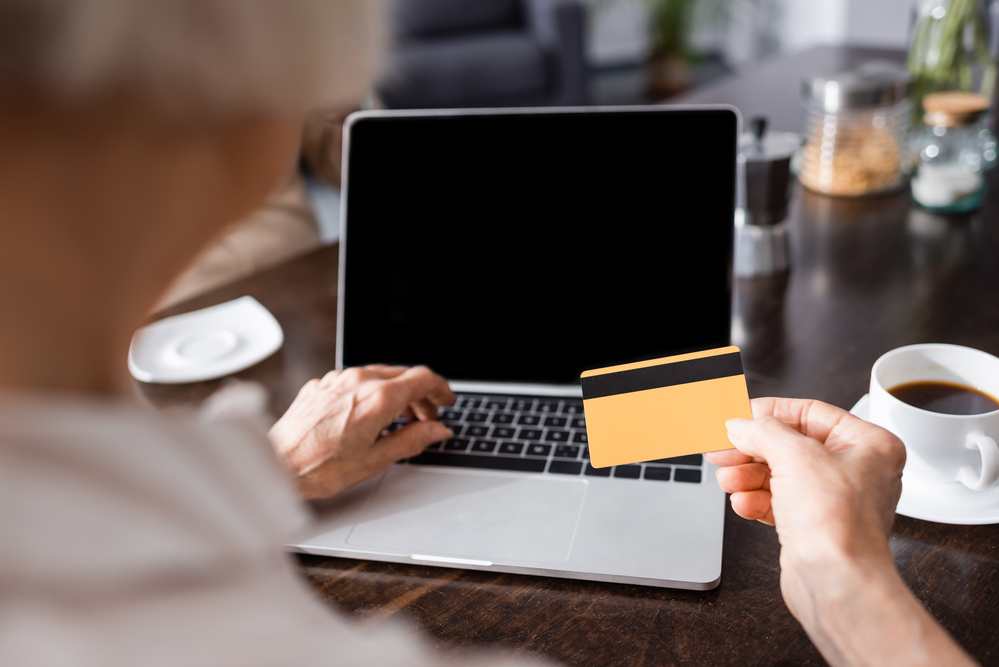Press Release – Metaverse Law
On or about 7/5/2022, Falcon Rappaport & Berkman PLLC (FRB) and Metaverse Law Corporation (Metaverse Law) have agreed to resolve their dispute in the United States District Court for the Southern District of New York. As part of a global resolution, the parties have agreed that FRB can refer to itself as a metaverse law firm in a descriptive manner, given the proliferation and greater accessibility of the public into metaverse, Web 3.0, and virtual reality spaces. Nevertheless, the parties agree that METAVERSE LAW remains Metaverse Laws trademark and Metaverse Law maintains the right to prosecute any non-descriptive infringement of the marks use.
FRB is a full-service business law firm that combines the deep knowledge and understanding of attorneys who proudly advise clients seeking solutions to their most complex matters, including businesses and individuals working in cryptocurrency and NFTs. FRB has led the charge into the metaverse and opened a law office in Decentraland in August 2021 (located at Parcel 25, -125). FRB differentiates itself by approaching matters with a level of depth and variety of skills unmatched by typical advisors, following through on a firm-wide commitment to excellent service, offering access to thought leaders in numerous areas of professional practice, and engaging in a partnership with clients to develop and achieve legal, business, and personal objectives.
Metaverse Law launched in 2018 and is a California-based privacy, AI, and cybersecurity law firm. Metaverse Law assists startups to multinationals with their CCPA, GDPR, and other data privacy obligations. Metaverse Law is a proponent of decentralized virtual reality spaces (as opposed to the panopticon of a singular dystopian metaverse) and advises tech companies and law firms alike on consumer privacy, ethics, and good governance inside and outside of their metaverses.
Can US Employers Monitor Their Employees at Work?
Image by Peggy und Marco Lachmann-Anke from Pixabay.
With the ongoing events that began in 2020 (the COVID-19 pandemic and ensuing quarantine), many U.S. employers transitioned to remote work arrangements to accommodate local or state stay-at-home mandates. During this time, some employers engaged in certain types of remote workplace monitoring, such as the use of mobile device management (MDM) or productivity monitoring software.
There are many legitimate reasons why employers may monitor their employees in the U.S.
- Customer-imposed contractual security requirements might require video surveillance on premises or implement data loss prevention (DLP) technology to prevent the unauthorized access or deletion of confidential data.
- New privacy and security laws require employers to protect the confidentiality and privacy of consumer data, which requires monitoring of access to personal information.
- Employers are required to protect access to proprietary information, or it may lose trade secret status if disclosed too broadly.
- Employers can also generally monitor to improve the quality of their services and workforce productivity and satisfaction, such as through call monitoring or review of employee internet use.
- Finally, employers have an overwhelming legitimate interest in preventing workplace harassment and criminal actions, which may require investigation and review of employees.
E-mails and Company Equipment (Computers, Phones)
U.S. employers generally have the right to monitor employees on company computers, phones, and other devices when (i) monitoring is done in the ordinary course of business, and (ii) employees are notified of the monitoring. In this situation, courts usually find that employees do not have an expectation of privacy regarding their communications and other activities on these devices.
GDPR For Small Business
In May 2018, the General Data Protection Regulation (GDPR) went into effect, strengthening the rights of EU residents regarding data privacy and protection. Essentially, these rights comprise two things:
- Besides transparency, organizations must provide individuals with the ability to review, amend, or challenge the processing of their personal information.
- To protect individual data, organizations should implement security measures and manage the liability for any breach or misuse of this information.
This article will discuss how GDPR may applyies to small businesses and some of the essential tasks these businesses need to determine whether the data privacy of their clients is being protected and whether they are GDPR compliant.
GDPR and Small Businesses
Small Businesses with 250-500 Employees
A small company is generally considered as one with fewer than 500 employees in the United States. It is a requirement under GDPR for companies to keep a record of all data processing operations, if they meet certain thresholds. If subject to GDPR, the GDPR’s record-keeping requirements apply to every business with 250-500 employees.
Whether a Data Protection Officer (DPO) is needed is not determined by the business’ size but by the scale and sensitivity of its core processing operations. DPOs are knowledgeable about data protection legislation and processes. A person in this position is also responsible for notifying the authorities of any data breaches.
Small Businesses with Fewer Than 250 Employees
Generally speaking, Article 30 of the GDPR exempts small businesses with less than 250 workers from the need to maintain records of their processing operations, whether as a controller or processor. The size exemption does not apply, however, if the businesses are processing data in any of the following activities:
- The data processing operations may jeopardize an individual’s rights and freedoms.
- The information to be processed may involve an individual’s racial origin; political, religious, or philosophical opinions; union membership; genetic or biometric data; or the individual’s health or sexuality.
- The personal data involved are related to criminal offender, conviction, or arrest-related.
- The personal data is processed regularly.
As long as these minor requirements are met, small businesses should consider themselves equivalent to larger firms under GDPR for Article 30 compliance requirements.
Small businesses are generally understood to have fewer resources than large corporations. Thus, the Information Commissioner Office (ICO) will consider any smaller company’s challenges in complying with the new legislation.
GDPR Compliance of Small Businesses
In most instances, your personal data, client information, and company connections will all have this kind of information in some manner. Therefore, let us examine the GDPR’s fundamental principles and how you will be required to comply with them.
Consent

Prepare to add more check-the-boxes to your systems since enhanced consent demands getting permission for each use of a customer’s data. Suppose your business requests an email address and permission to deliver purchase information. In that case, it might need permission once more before utilizing that email for marketing reasons. Businesses should phrase all permission requests in a manner that is understandable to the company’s targeted customers.
Access and Control
Data owners should be given control over their information, including the right to delete, receive and reuse their data. It also includes the ability to move, copy, or transfer their data securely. As a business owner, you may need to provide a system for customers to control the use of their personal data, from data entry to data deletion.
Data Breach Reporting
Businesses may have to notify data owners if a security breach occurs. While this may conjure up visions of large-scale attacks, it also encompasses minor errors such as granting access to your data to a contractor or an employee losing a laptop. No matter how minor the breach is, the business might have to inform the data owner about it if it poses risks to the data owner.
Privacy
After the data is provided, you’ll need security measures in place to preserve it. Merely said, you should see that data is appropriately protected. Thus, it would be best if you consider encrypting any database that holds your clients’ data rather than simply password protecting it.
Overseeing
You may need to provide proper surveillance to third-party applications and organizations that are involved in the data processing. When using online newsletter services, the use of mailing lists should be in GDPR compliance.
Additional GDPR Compliance
The following factors may help illustrate the most critical actions that US small businesses will need to do to be GDPR compliant:
Audit the Data
Proper auditing of data for GDPR compliance is not a simple undertaking. Thus, businesses must make wise decisions. They may be required to do Data Protection Impact Assessments (DPIAs) before initiating any data processing. It proactively protects data and assesses potential risks to data subjects associated with any new data processing. Most European data protection authorities provide guidelines on their websites on DPIAs and when they should be conducted.
Audit the Service Providers
Auditing your service provider’s compliance is a chore that many US businesses struggle with and may be the source of your business’s most significant risk. Businesses need to evaluate and execute data processing agreements with third-party service providers that handle personal data on your behalf. GDPR requires the data controller to enter contracts, and the data processor may only act on the controller’s orders. A service provider that does not comply with GDPR may be subject to non-compliance and put the controller at risk.
What Happens To Non-Compliant Small Businesses?
Investing the effort to design a GDPR-compliant privacy policy may significantly assist small businesses in showing compliance. Those who have not done so may be deemed non-compliant. They may face reprimands, temporary or permanent data processing limits, data restriction or deletion orders, and suspension of data transfer to third countries from supervisory authorities.
Article 83 of the GDPR alerts enterprises to infractions and imposes discretionary fines. It incentivizes enterprises to handle personal data legally and responsibly.
GDPR Compliance is Important for Small Businesses
GDPR compliance is crucial for both small and large businesses. Many businesses have hired a Data Protection Officer (DPO) to monitor GDPR compliance.
Inadequate comprehension is a poor excuse for GDPR non-compliance. Whether it is a sole proprietor or a global corporation, businesses should review how they handle personal data and verify that suitable processes and policies are in place. Systems for granting data access requests and systems for detecting and reporting data breaches may need to be in place. Businesses should also implement appropriate technical and organizational protections to oversee the safety and security of data.
To comply with the GDPR requirements, your business must work with experts in data privacy and protection. Contact Metaverse Law today and learn more.
GDPR and Its Impact on Business – Find Out Here!
Over the years, the internet has changed the way we communicate and how we handle day-to-day tasks. There are so many things that we can do via the internet, from sharing documents to paying our bills. All of these are convenient, but these tasks require us to enter personal details.
With so much information that we share online, how can you guarantee that your information will be kept safe? Have you ever wondered what happened to the information you share online, like your bank details, addresses, contacts, etc.
Companies say that they collect this information to serve you better to provide you with more targeted and relevant communication. In turn, you get better customer experience in the end.
The question is, what do they do with that data?
That’s where the GDPR comes in.
The General Data Protection Regulation (GDPR) took effect on May 25, 2018 and many companies have taken steps to comply with it; otherwise, they could face fines and other consequences. But what is GDPR and what are the companies that are strongly affected by this change?
GDPR Compliance: What is it?
GDPR is the set of rules designed for EU individuals that allow them to have more control over their data. The main goal of this regulation is to make the digital environment simple so that businesses and their customers in the EU can benefit from a digital economy, yet still protect individual privacy.
The GDPR applies to all companies that sell to the EU, store personal information about EU residents, including EU B2B personal information collected from companies on other continents.
Which Companies are Affected by GPDR?
As mentioned, companies that sell to the EU, store personal information about EU residents, and have customers in the EU are affected by this.
In addition, GDPR applies to all companies established in the EU, regardless of where their data processing takes place. In fact, even non-EU established companies will be subject to GDPR, as long as the business offers goods and/or services to EU citizens. Therefore, this puts consumers from the EU in the driver’s seat, and businesses must comply with the regulation.
Here are some of the industries that are most hit by GDPR:
Social Media
Ever since GDPR took effect, social media users have noticed changes in the privacy policies of social platforms they frequent, and they were notified of these changes via email. The reason behind these changes is the GDPR and other privacy laws.
Companies in the social media marketing industry are one of the most affected by this new regulation. Therefore, social media marketers must disclose and ensure that users know how their data are being used.
In addition to that, they need to request full consent from users to use their data outside of what is strictly necessary to provide the social media information society services.
There are also other strict rules that GDPR expects social media companies to do, such as:
- Users have the right to be forgotten, which means that users now have the right to delete all their data.
- Companies that collect information directly from users must inform users within 72 hours after a data or security breach is detected.
- Plain language must be used in all privacy policies and explanations regarding users’ data.
Despite this drastic change in the social media industry, users can highly benefit from this shift in data privacy rights.
Online Retail
GDPR has become a challenge for online retail companies as it urges them to make changes that make many brands rethink their strategies. Due to GDPR restrictions, like limitations with the use of third-party information, or limitations on sharing of user information to third parties, it has become a challenge for online retailers to thrive.
However, these changes have its advantages as well because it puts online retailers on better standing with consumers. This will help them build a more trustworthy relationship with consumers today, which is crucial in today’s digital environment.
Digital Banking
Undeniably, the effects of GDPR to financial services are significant. GDPR has made the privacy of users their primary concern. The main principle of GPDR is “incorporating privacy and data protection” considerations into all sectors that use personal information, which is critical for the digital banking industry.

Although GPDR encourages best practice and data compliance, it comes with a side effect. Digital bank owners see the new regulation as costly and can affect their projects further. Therefore, many have their reservations that lead to them to be hesitant to invest because they fear they would get it all wrong.
However, there are many benefits when digital banks comply with data privacy law. For one, it will provide them with more opportunities for innovation and investment because it’s more than regulatory compliances. In fact, it’s a profitable strategy in which bank owners can make bolder decisions and enter new territories due to the integration of data protection into core development strategies.
Secondly, GPDR compliance allows digital bank owners to more ethically handle data—a huge advantage in the industry.
Finally, GPDR provides digital defense by considering internal and vendor security, and reinforcing good data handling processes that banks can follow should there be a security breach.
Cloud Computing
Cloud computing companies are also affected by GPDR, due to the sensitivity of customers’ information in the cloud. Since cloud service providers host various types of data, they often deal with sensitive and classified information, which could fall under the wrong hands.
Another challenge is the externalization of privacy because businesses that get a cloud service expect privacy agreements and commitments that they shared with their customers and staff will still work. However, if the cloud service provider operates in various locations, the rights of data owners may be subject to different regulations and requirements. Therefore, it’s advisable to have a customized agreement with a cloud computing company when it comes to privacy commitments.
In a Nutshell
It’s been years since GPDR came into effect. Today, it still remains as a rigorous compliance process. However, GPDR has brought many opportunities that can improve strategies and deliver more innovation in the market.
Even if you’re not in any of the industries listed above, as long as you operate a business that sells products online to EU individuals, you need to consider GPDR -compliance; otherwise, you could risk facing hefty fines or lose customers.
So, if you’re unsure whether your company is GPDR compliant, contact someone with GDPR experience to assess your GDPR compliance.




